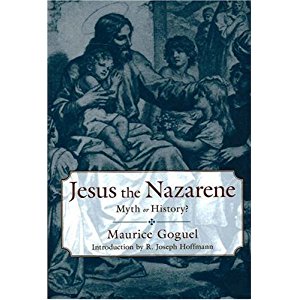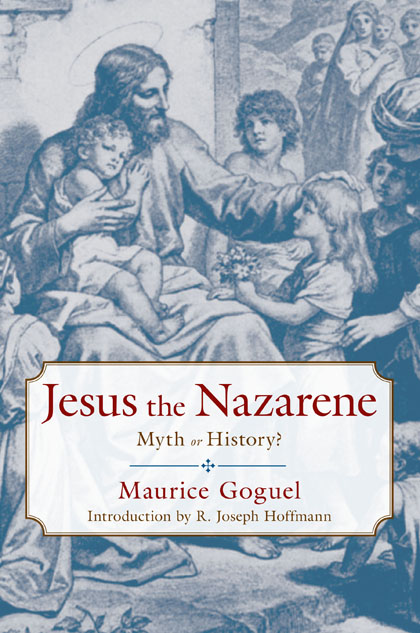The opening publication of R. Joseph Hoffmann, the leader of “The Jesus Process: A Consultation on the Historical Jesus”, is a curious puzzle of blended words and concepts that have the power to overwhelm his choir with the sense that they are listening to a view so original, unique and erudite that they are bound to think:
Now here is our prophet! I do not understand what he is saying but it is clearly incomprehensibly deep. I must bookmark this and tackle it again another day when I will not feel so intellectually incompetent if I do not understand his every word. Till then, I will highly praise and recommend it to others . . . .
Unless I have misunderstood Hoffmann’s publication (he speaks of his blog post as an “essay” “now published!” along with much terminological pretentiousness such as “Process”, “Consultation”, copyright insignia) he almost entirely avoids the question of whether or not Christianity began with an historical Jesus. That appears not to be his intention at all. For Hoffmann, the historicity of Jesus is a given. Hoffmann describes his essay
as a preface of sorts to a more ambitious project on the myth theory itself and what we can reliably know – if anything — about the historical Jesus.
The question of what we can know about the historical Jesus has been the starting point of all hitherto quests we have seen for the historical Jesus. Necessarily it begins with the assumption that there is indeed an historical Jesus to know about.
Hoffmann sums up the myth theory itself as
largely incoherent, insufficiently scrupulous of historical detail, and based on improbable bead-string analogies . . . . [guilty of] methodological sloppiness with respect to the sources and their religious contexts . . . . [and] almost entirely based on an argument from silence, especially the “silence” of Paul.
One has to wonder why any such theory is deserving of any scholarly attention at all or how Hoffmann himself can ever justify his own history of support for the mythicist team.
If the fear is that a misguided public are ignorantly being persuaded by arguments so inept, then why not present a simple and direct point by point exposure of the sham? Hoffmann would respond to this question by declaring that such point by point exposures have been published since 1912 —
- S. J. Case, The Historicity of Jesus (Chicago, 1912)
- F. C. Conybeare, The Historical Christ (London, 1914)
- Maurice Goguel, Jesus the Nazarene, Myth or History (London 1928; rpt. Amherst, 2008)
- R. T. France, The Evidence for Jesus (London, 1986)
- Morton Smith, “The Historical Jesus,” in Jesus in History and Myth, ed. R.J. Hoffman and G.A Larue (Amherst, 1986)
Yet bizarrely the same R. Joseph Hoffmann who writes in his Jesus Process essay that Goguel’s arguments are a “clear refutation” of mythicism, and who in the Introduction in a reprint of Goguel’s book wrote that
Goguel poses real challenges to the theory that Jesus never existed (p. 35)
also wrote on this blog two years ago that Goguel’s arguments were “weak and dated“, that the reprint of his book had “historical interest” but was otherwise “pretty insignificant“, that to demolish his arguments, as Doherty has done, is nothing worth mentioning, and that the myth theory is kept at arms length from academia for reasons other than its intrinsic merits: Continue reading “Hoffmann’s Ersatz Response to Mythicism”


